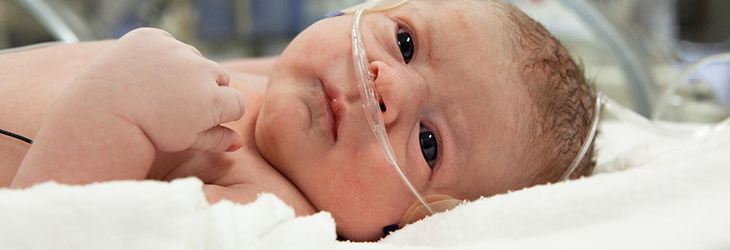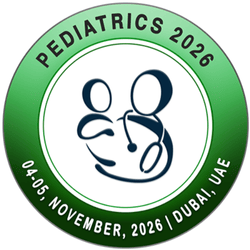Track: Neonatal Respiratory Diseases

“Neonatal Respiratory Diseases”
this session will explore the latest advancements in the diagnosis, treatment,
and management of respiratory diseases in neonates. Key topics will include
innovations in respiratory support technologies, strategies for managing common
neonatal respiratory conditions, and emerging research on the long-term
outcomes of neonatal respiratory interventions. Participants will gain insights
into the latest approaches for managing conditions such as respiratory distress
syndrome (RDS), Bronchopulmonary Dysplasia (BPD), and Neonatal Pneumonia, as
well as strategies for optimizing respiratory care in the Neonatal Intensive Care Unit (NICU).
Innovative Respiratory Support
Technologies: Discover the latest advancements in respiratory support for neonates,
including high-frequency oscillatory ventilation (HFOV), nasal continuous
positive airway pressure (nCPAP), and advanced non-invasive ventilation
techniques. These innovations are aimed at improving oxygenation, minimizing
lung injury, and enhancing overall respiratory function in critically ill
neonates.
Management of Respiratory
Distress Syndrome (RDS): Explore the latest strategies for the prevention
and management of RDS, including the use of surfactant replacement therapy and
antenatal corticosteroids. The session will highlight recent research on
optimizing treatment protocols and improving outcomes for preterm infants at
risk of RDS.
Bronchopulmonary Dysplasia
(BPD) Management: Learn about recent advancements in the management of BPD,
a common complication of premature birth. Topics will include strategies for
reducing the incidence of BPD, including lung-protective ventilation strategies
and nutritional support, as well as approaches to managing long-term
respiratory complications associated with Bronchopulmonary Dysplasia.
Neonatal Pneumonia and
Infection Control: This segment will cover the latest developments in the
diagnosis and treatment of neonatal pneumonia, including the use of targeted
antimicrobial therapies and infection control measures within the NICU.
Emphasis will be placed on early detection and prevention strategies to reduce
the incidence of neonatal infections.
Long-Term Outcomes and
Follow-Up: Gain insights into the long-term respiratory outcomes of neonates
with respiratory diseases, including the impact of early interventions and
ongoing follow-up care. The session will discuss strategies for monitoring and
managing respiratory health in children who were born with neonatal respiratory
conditions.
Family-Centered Respiratory
Care: Family-centered care approaches are crucial in the management of
neonatal respiratory diseases. This session will explore strategies for
involving families in the care process, providing education and support to
parents, and addressing the emotional impact of managing a neonatal respiratory
condition.
Scientific Highlights
- Perinatal and Neonatal Care
- Neonatal Respiratory Diseases
- Pediatric and Neonatal Cardiology
- Nutrition and Growth
- Pediatric and Neonatal Oncology
- Pediatric Dentistry
- Pediatric and Neonatal Infectious Diseases
- Pediatric and Neonatal Surgery
- Emergency Medicine and Critical Care
- Pediatric and Neonatal Neurology
- Pediatric and Neonatal Endocrinology
- Pediatric and Neonatal Gastroenterology
- Adolescent Medicine
- Pediatric and Neonatal Ophthalmology
- Pediatric Otolaryngology
- Pediatric Palliative care
- Pediatric and Neonatal Diseases and Disorders
- Pediatric and Neonatal Pulmonology
- Developmental and Behavioral Pediatrics
- Clinical Case Study in Pediatrics and Neonatology


